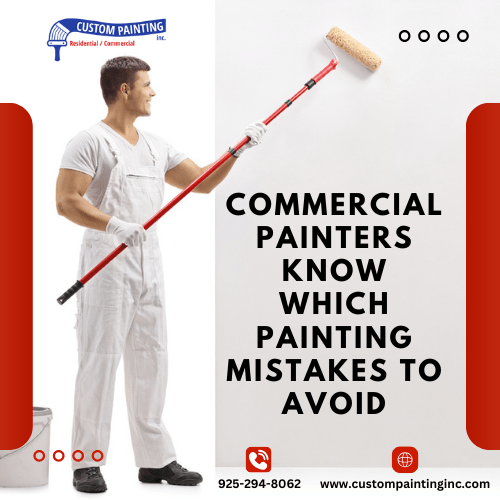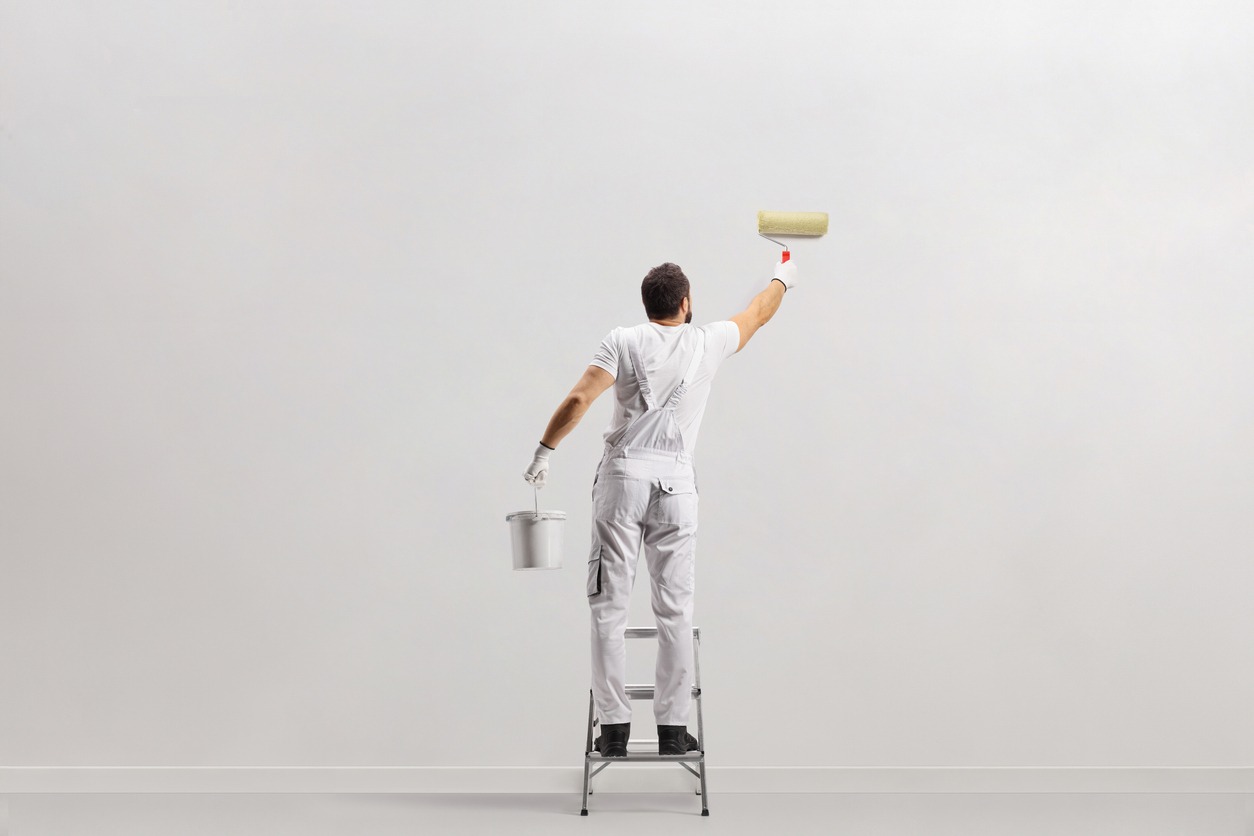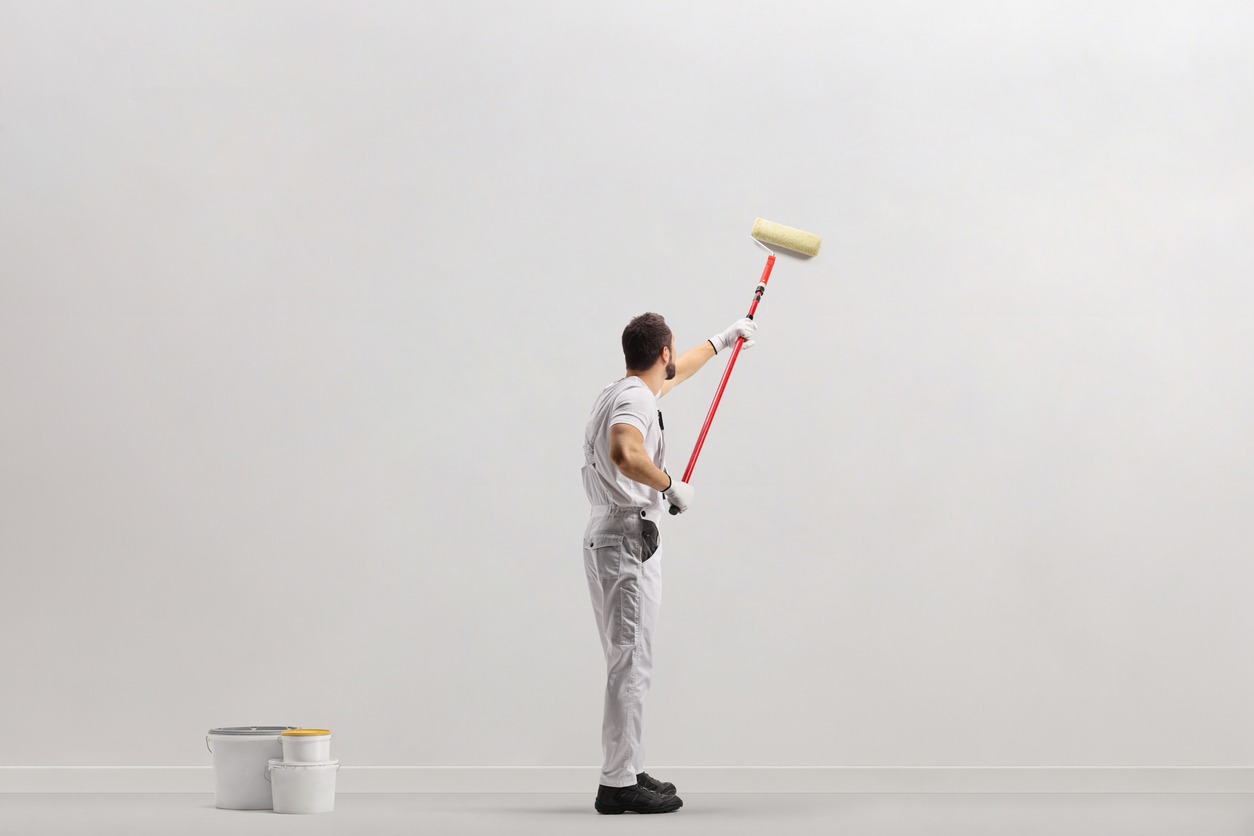When it comes to commercial painting, avoiding mistakes is crucial for a professional and long-lasting finish. Experienced commercial painters have the knowledge and skills to steer clear of common errors that can ruin a paint job. From surface preparation to the final coat, they know the pitfalls to watch out for, ensuring that your project is completed to the highest standards. Join us as we discuss the painting mistakes that professionals know how to avoid.
What are the Services that Commercial Painters Offer?
Commercial painters offer a wide range of services to meet the needs of businesses and organizations. These are the common services they provide.
- Interior Painting: Commercial painters handle all aspects of interior painting, from surface preparation to applying the final coat. They work in various spaces, including offices, retail stores, and warehouses.
- Exterior Painting: This service involves painting the exterior of commercial buildings. Painters use high-quality, weather-resistant paints to protect and enhance the building’s appearance.
- Surface Preparation: Proper surface preparation is crucial for a long-lasting paint job. Commercial painters perform tasks like sanding, cleaning, and priming to ensure the paint adheres well.
- Specialty Coatings: Some projects require specialized coatings, such as anti-slip, fire-resistant, or waterproof coatings. Commercial painters are trained to apply these coatings correctly.
- Color Consultation: Many commercial painters offer color consultation services to help businesses choose the best colors for their spaces. This service ensures the colors align with the brand and desired atmosphere.
- Maintenance and Touch-Ups: Regular maintenance helps keep painted surfaces looking fresh. Commercial painters offer touch-up services to address wear and tear, extending the life of the paint job.
- Power Washing: Exterior surfaces often need to be cleaned before painting. Power washing removes dirt, grime, and old paint, providing a clean surface for new paint to adhere to.
- Graffiti Removal and Prevention: Commercial painters offer graffiti removal services and apply anti-graffiti coatings to protect surfaces from future vandalism.
Common Mistakes that Amateur Painters Make for Commercial Painting
When it comes to commercial painting, amateurs often make mistakes that professionals know how to avoid. These errors can lead to poor results, wasted time, and additional costs. Here are some of the most common mistakes made by inexperienced painters.
Inadequate Surface Preparation
One of the biggest mistakes amateurs make is skipping or rushing the surface preparation. Proper preparation is crucial for the paint to adhere well and look smooth. This includes cleaning the surface, repairing any damage, and applying the right primer. Without these steps, the paint may peel, crack, or bubble shortly after application, leading to a job that doesn’t last.
Amateurs often underestimate the time and effort required for surface preparation. They might think that a quick wipe-down is enough, but professionals know that thorough preparation is key to a successful paint job. Skipping this step leads to poor adhesion and a finish that won’t hold up over time.
Using Low-Quality Paints and Materials
Another common mistake is using cheap or low-quality paints and materials to save money. While this might seem like a good idea initially, it often leads to unsatisfactory results. Low-quality paints might not cover as well, requiring more coats and leading to an uneven finish. They may also wear out more quickly, meaning the job will need to be redonesooner than expected.
Inexperienced painters might also choose the wrong type of paint for the job, such as using interior paint on an exterior surface. Professionals understand the importance of selecting high-quality, appropriate materials to ensure durability and a professional look.
Poor Application Techniques
Amateur painters often lack the experience and skills needed to apply paint evenly and smoothly. This can result in visible brush strokes, roller marks, or streaks. Inconsistent application also leads to uneven coverage, with some areas appearing darker or lighter than others.
Additionally, amateurs may not know how to handle challenging areas like edges, corners, or textured surfaces. They might apply too much or too little paint, leading to drips, sags, or thin spots. Professionals are trained to use the righttechniques and tools for a flawless finish.
Ignoring Environmental Factors
Environmental factors like temperature, humidity, and ventilation play a big role in how paint dries and cures. Amateurs often overlook these factors, leading to problems such as slow drying, poor adhesion, or an uneven finish. Painting in extreme temperatures or high humidity can cause the paint to dry too quickly or not at all, affecting the overall quality of the job.
Professionals understand the importance of considering environmental conditions before starting a project. They know when to paint and when to wait, ensuring that the paint dries properly and the finish is smooth and durable.
Rushing the Job
Rushing through a painting job is a common mistake that leads to subpar results. Amateurs might be eager to get the job done quickly, but this often results in cutting corners, such as not allowing enough drying time between coats or applying paint too thickly. This can cause the paint to not adhere properly or lead to uneven coverage and texture.
Taking shortcuts might save time in the short term, but it often leads to more work down the line. Professionals know the importance of taking their time to do the job right, ensuring a high-quality finish that lasts.
How Do Commercial Painters Avoid Painting Mistakes?
Commercial painters are trained to avoid common mistakes that can ruin a paint job. Their experience and attention to detail help them deliver high-quality results. Here’s how they do it.
- Thorough Surface Preparation: Commercial painters spend time properly preparing the surface before painting. This includes cleaning, sanding, and priming to ensure the paint adheres well and looks smooth.
- Using High-Quality Materials: They choose the right type of paint and materials for the job. This includes selecting high-quality paints that offer better coverage and durability, ensuring a long-lasting finish.
- Proper Application Techniques: Professionals use the correct tools and techniques for each type of surface. They know how to apply paint evenly without leaving brush strokes or roller marks, resulting in a flawless finish.
- Considering Environmental Factors: They take into account the temperature, humidity, and ventilation to ensure the paint dries properly. This prevents issues like poor adhesion or an uneven finish.
- Allowing Adequate Drying Time: Commercial painters give each coat of paint enough time to dry before applying the next. This prevents issues like peeling or cracking and results in a smooth, even surface.
- Regular Inspections During the Process: They inspect their work regularly to catch and fix any issues immediately. This attention to detail helps them maintain the quality of the paint job throughout the project.
Conclusion
Commercial painters have the experience and knowledge to avoid common painting mistakes, ensuring a smooth and professional finish every time. Their attention to detail and understanding of the entire process set them apart from amateurs while delivering results that last.
For expert painting services, contact our team at Custom Painting, Inc. by calling 925-294-8062 or filling out our Contact Form. We’re here to help with your next project.



